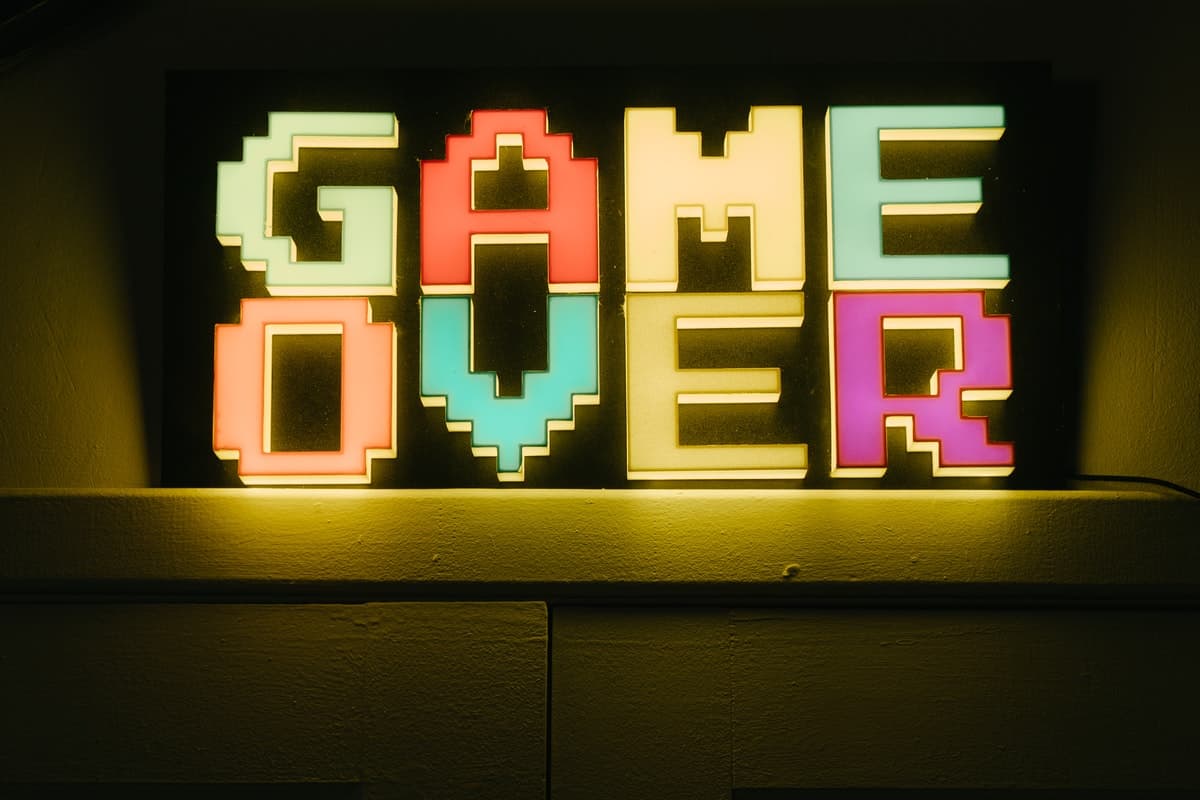
How to Code a Game: A Beginner’s Guide
Coding can sometimes be tedious, but coding games is a different story. Designing and developing a video game is one of the most exciting programming activities, not to mention it is one of the highest-paying careers out there. The average salary of a game developer is $101,644, according to ZipRecruiter.
Today, we are going to show you how to code a game for beginners. You don’t need to be a programming expert to start your game development journey and build fun games. Read below to learn more about game development programming languages, game engines, and project ideas.
What Is Coding?
Coding is the communication process we use with machines. Programmers use different coding languages to give computers commands. Coding is used in processes like web development, software engineering, and developing mobile games.
Programming games consists of two areas: front end and backend development. Whether you’re trying to code an entire game, website, or mobile app, you will need to create the structure, also known as the backend or server-side, and the product’s appearance, also known as front end or client-side.
In your coding journey, you need to use a particular set of programming languages that work in both areas. You can work with coding languages like C#, Java, C++, and Swift in game programming. The coding language you choose will depend on the operating system where the game will be used and the features you want to add to it.
Popular Coding Languages for Games
Programming languages in game development are usually related to the operating system where they’ll be used. For example, Android game developers usually use the text-based coding language Java, while iOS developers mostly use Swift. Desktop game developers use other coding languages like C# and JavaScript.
C++
C++ is a flexible and powerful programming language used in games like Counter-Strike, Invictus, and World of Warcraft. C++ is considered a general-purpose programming language used for high-performance applications. It supports programming areas like procedural, functional, and object-oriented programming.
C#
C# is the main scripting language for Unity, where most Nintendo Wii games were built. C# is a versatile programming language, so it’s easier to communicate with the system by using this tool. Some of the most popular games built with C# include Super Mario Run and Pokemon Go. Learning C# is a great choice if you want to learn game development.
Java
Although Java isn’t widely used in video games, it is used in mobile game creation. You can find tons of Android games that were built with Java, and it is also used for desktop games in combination with Flash, a game creation software developed by FutureWave. It’s a general-purpose and object oriented coding language.
Swift
Swift is an open-source programming language used to develop mobile applications for iOS operating systems. You can use Swift to develop games for iPhones or MacBooks. Most programmers believe that Swift is an easy-to-read programming language, so it’s a good starting point for beginner coders.
What Is a Game Engine?
A game engine is the equivalent of a programming framework, but it’s focused on game development. The framework is the environment in which the product is built. To develop a game, you can use an existing game engine or create one by yourself using another game engine. You can implement features like artificial intelligence (AI) and animations.
The game engine allows you to render graphics, apply collision detection, and manage memory. There are several game engines, but some of the most popular ones are Unity, Unreal Engine, Godot, and Phaser.
Unity
Unity is a versatile game engine used for multiple functions like 2D and 3D game development, interactive animations, and simulations. This software engine is not limited to video games. Other industries like automotive, film, and architecture also code with Unity. This is one of the most popular game development tools.
Unreal Engine
Unreal is a popular game engine designed in 1998 by Epic Games. This game engine was written in C++, and it’s considered one of the strongest engines in the industry. It supports several types of games, including desktop, mobile, and virtual reality. It is also used in other areas like television and film content and live event production.
Godot
Godot is a game engine built with the concept of a tree of nodes. With Godot, you can work on game design and add graphics or simulations. Godot is a good tool to use when you start developing games because it’s an easy-to-use platform. After a while, you can advance your coding skills using other game engines like Unreal or Unity.
Phaser
Phaser is a lightweight, open-source, HTML5-based game engine. This platform is also useful if you want to learn how to code a video game from scratch. Phaser is beginner-friendly because of its streamlined features. It uses JavaScript to build 2D video games and is mostly used for website games.
Pygame
Pygame is a streamlined game engine that allows you to build your game without worrying about the backend complexities. You can create and edit graphics in Pygame, and it works on most operating systems. If you know how to use Python already, this is the game engine is the one you should use.
GameMaker
If you don’t feel comfortable writing in complex coding languages like C++, you can use GameMaker. It’s a game development framework that was built in the Delphi programming language by Mark Overmars. Some popular games created in GameMaker are Undertale and Sudoku Scramble.
Common Terms You Should Know
Before you dive into the world of video game programming, it’s important to understand a few common topics. You should become familiar with subjects like variables, loops, conditions, and datatypes. These are programming structures you should learn before starting the game design process.
Variables and Datatypes
In game development, a variable is something that can be changed or transformed. A variable could be something like the score, which usually changes as the player gains points and progresses through the game.
Conditions
Conditional statements are a fundamental aspect of programming. Conditions work with an if-then logic that allows us to control the decisions the program makes. For example, we could instruct the computer to give the players three points each time they earn a golden coin.
Loops
Loops are lines of code that repeats until a particular condition is reached. Loops help programmers write fewer lines of code that would otherwise take them hours to write. This way, they can write a command once and then repeat it as many times as they need.
Data Structures
A data structure is the way data is stored in the program. In the game design process, you will use data structures to optimize data organization in the game. Some of the data structures you’ll use in game development are binary search trees (BST) and stacks.
API
An application programming interface (API) is software that enables communication between multiple applications and systems. This makes data transfer both possible and effective. We use APIs in our daily life whenever applications interact with cloud services or, for example, our phone’s operating system.
Playtesting
Playtesting is the process of evaluating the performance of the game through user interaction. This is the most efficient way to know how users feel about your game. After playtesting, you can decide if there is something to improve or if you would like to add a new feature to make the user experience more enjoyable.
How to Code a Video Game: Step-by-Step Guide

At first, learning how to code a video game from scratch can be daunting, especially if you’re a beginner. However, once you learn how to use tools like Unity, Unreal, or GameMaker, you’ll be able to start using game engines and designing your game. The following list will show you the most important steps to building a video game.
Nail Down Your Concept
The first step is to set up a concept for your game. Ask yourself questions to start narrowing down your ideas. What is the purpose of this game? Will it be 2D or 3D? What type of game will it be?
There are many game types to consider before you decide on your preferred path. You can create a multiplayer game, adventure game, shooting game, role-playing game, action-adventure game, and more. This also depends on your level of experience and comfort.
You should also think about the story, characters, and visuals. For example, there are many platformer games out there, but the most memorable are the ones with strong characters and stories. Be creative with your original idea and the rest will come.
Choose a Game Engine
To build a game, you need to use a game engine. Keep in mind that you can either create one out of existing game engines or use game engines like Unity or Unreal. The game engine that you use will directly affect your coding journey, so you need to choose one that has user-friendly tools and features to ease the process.
You should also think about other tools you may need depending on the complexity of the game. Some of you may only need a text editor and a compiler, but if you have more ambitious projects, you may also need 3D model programs and image editors.
Some of these tools might be quite expensive, so you need to think about your budget and expectations with the game. You can talk to other game developers in online communities to see which paths they took and which might be best for you.
Plan Your Game
Now it’s time to plan your game. Think about your game idea and the characters you’ll add, the number of levels, the mechanisms to win the game, and the theme you’d like to use. This is a crucial step to follow if you want to create a successful and interactive game.
A smart thing to do is divide your project into smaller milestones to make goals easier to complete. You can begin by sketching out the design before moving on to which tools and techniques you need to use to get there.
This is also a good place to start planning your timeline. How long does it take to develop a game? Be realistic about your goals. If you’re working a different job while you’re developing your game, you should keep those commitments in mind.
Develop the Art and Design
Another important step is the art and design of the game. Animation is a visual tool that is crucial when it comes to user interaction. It makes the game more appealing as well as more memorable to the user. You only need to know software programming basics and core concepts to create a successful design.
During this step, you’ll need to keep in mind character design, world building, and the surrounding art of the game. Most games have a clear and cohesive aesthetic, so make decisions based on how you want the user to feel while they’re playing the game. You can use 3D scene design tools to create successful action animations.
You can hire a game designer or try your hand in the game design process by getting professional training. You can also try attending one of the best game design schools. If you’re not naturally creative, you can still create a visually stunning game.
Work on Music and Sound Effects
Music and sound effects are vital to providing a seamless user experience. You can transport the gamer to another world for hours on end by using the right sound effects. It might take time, but it’s worth it once the final product is finished.
Make sure your music and sound effects match the visual aesthetic of the game. For example, if you’re building a horror game, you can use music to build suspense. For a quest-based adventure game, you can add sounds according to different accomplishments.
Some examples of games with good sound design include The Last of Us, Dark Souls, and Breath of the Wild. Good sound design creates a more immersive experience for the user and helps create the world of the game.
Test the Game
As we mentioned earlier, playtesting will help you identify potential issues in the platform. Although it can seem tedious, you’re not finished just because you’re done with the development process. You need to continue evaluating and testing your game to enhance the experience.
To test your game, you’ll need to consider many different factors. These include any potential bugs in the gameplay, inconsistent visual effects, plot holes in the story, and broken applications. Then you’ll need to take note of things you need to improve and try again.
You can also hire a game tester to get the job done. If you particularly enjoy this process, you can also become a game tester yourself. According to PayScale, the average salary of a game tester is $40,483. This is a lower salary than other career options, but it pays off because the job is fun.
Publish Your Game
Now that you feel confident with the finished product, it’s time to publish and advertise your game. Marketing plays a huge role in the promotion process. The best thing to do is hire a marketing consultant or agency. They will be in charge of promoting your game to reach your target audience and generate leads.
You’ll also have to decide how much your game will cost. This depends on the scope of the game, how much work you put into it, and how many costs you incurred during the development process. If your game is a mobile or web app, you can also use advertising to make money.
To sell your game, you can create a website where people can watch interactive tutorials and download them. You can also post it on the Google Play Store or the iOS App Store or distribute the hard copies to retailers. There are many game distribution platforms to help you put your actual game out there.
Five Game Ideas for Beginner Developers
Something as simple as a game idea can make or break the success of your game project. Once you finish some online coding classes, you can start developing your own games. In the following list, we will show you easy-to-build games that you can use as inspiration to start learning how to code a game.
Shooting Games
Shooting games are a good starting point for your coding journey in game development. The final goal in these games is to defeat the enemies by aiming a tool at them and shooting them. You should add challenges and barriers to make the game more interesting. You should also have a clear theme.
Car Racing
Car racing games are also streamlined and easy to build. You can look at Monaco GP as an inspiration to build your first car racing video game. Building Monaco GP can be fun, even if it seems like an endless process.
Pong
Pong was one of the first successful video games ever built. It was a 2D game that used simple animations, and this means it’s easy to recreate with your own designs. This game will help you learn fundamental game coding skills like scoring systems, screen constraining, and user input.
Canyon Bomber
Canyon Bomber is another vintage game that can help you build essential game development skills. This arcade game was built by Atari. You can play around with different features like destroying blocks, color-changing functions, and scoring systems.
Space Racing
This is a two-player game that consists of two rockets that try to reach the end of the map without being hit by space debris. There is a line in the middle of the screen that represents the time left to play, and the player with the most points wins. If you want to work on your world-building skills, this game is the best way to do it.
Get Started
Game development is quite a lucrative career due to the high demand for video games. According to NewZoo Insights, a game data research company, there are currently almost 3 billion game players, and the game development industry will generate about $176 billion this year. This means that 2021 is the best time to become a game designer.
Now that you know how to build a video game from scratch, you can start your coding journey. If you have no programming skills at all, it might be a good idea to enroll in some beginner-level training courses before jumping into the world of game development. Maybe you and your fellow students will develop the next Call of Duty or Fortnite.



